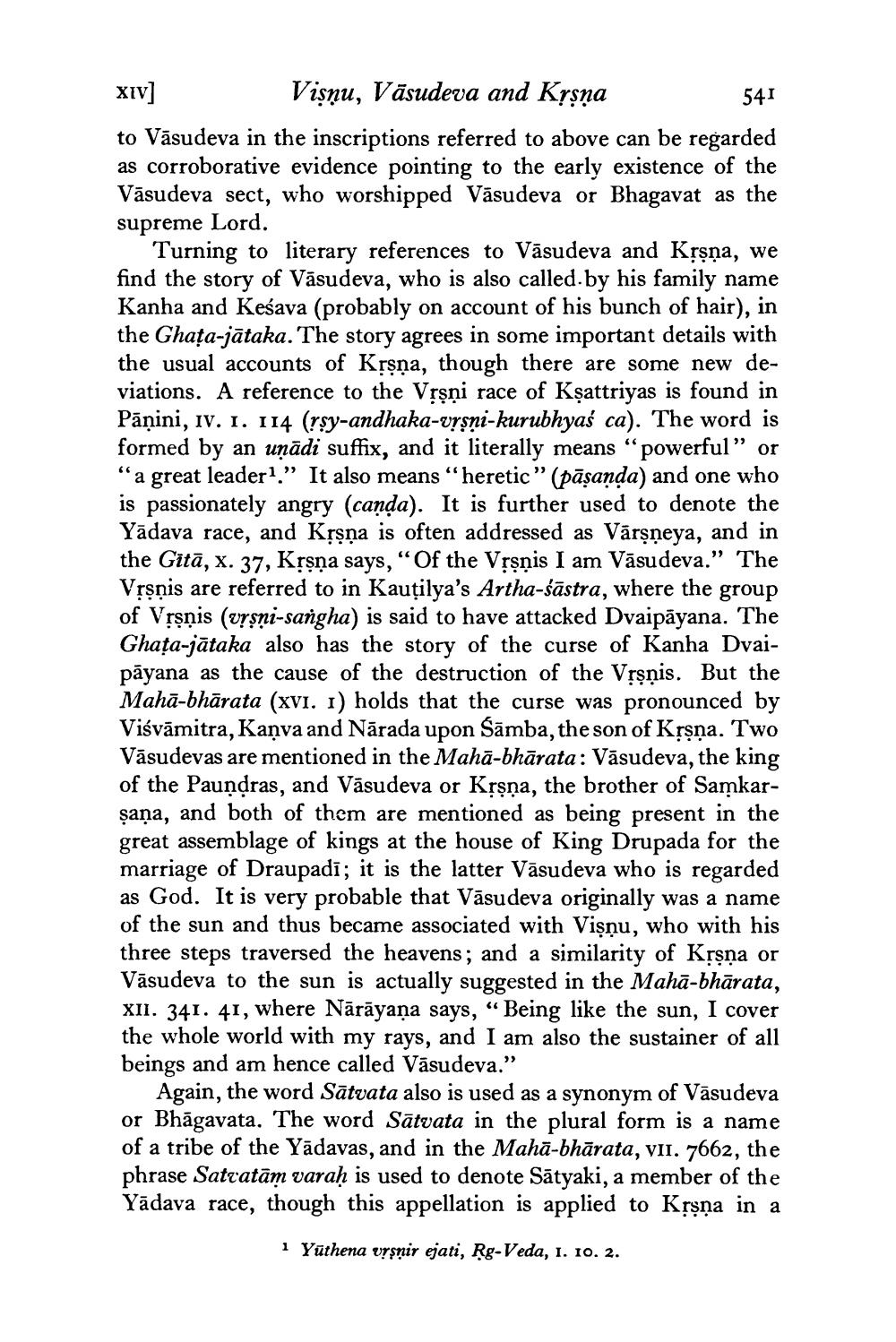________________
XIV] Visņu, Vāsudeva and Krşņa
541 to Vāsudeva in the inscriptions referred to above can be regarded as corroborative evidence pointing to the early existence of the Vāsudeva sect, who worshipped Väsudeva or Bhagavat as the supreme Lord.
Turning to literary references to Vāsudeva and Krşņa, we find the story of Vāsudeva, who is also called by his family name Kanha and Keśava (probably on account of his bunch of hair), in the Ghața-jātaka. The story agrees in some important details with the usual accounts of Krsna, though there are some new deviations. A reference to the Vrşņi race of Kşattriyas is found in Pāṇini, iv. 1. 114 (rsy-andhaka-vrşņi-kurubhyas ca). The word is formed by an uņādi suffix, and it literally means "powerful" or "a great leader1." It also means "heretic” (pāşanda) and one who is passionately angry (canda). It is further used to denote the Yādava race, and Krşņa is often addressed as Vārşneya, and in the Gitā, x. 37, Krsna says, “Of the Vrsnis I am Vāsudeva.” The Vrsnis are referred to in Kautilya's Artha-śāstra, where the group of Vrşnis (vrsņi-sangha) is said to have attacked Dvaipāyana. The Ghața-jātaka also has the story of the curse of Kanha Dvaipāyana as the cause of the destruction of the Vrşņis. But the Mahā-bhārata (XVI. I) holds that the curse was pronounced by Viśvāmitra, Kaņva and Nārada upon Sāmba, the son of Krsna. Two Vāsudevas are mentioned in the Mahā-bhārata: Vasudeva, the king of the Paundras, and Vasudeva or Krşna, the brother of Samkarşaņa, and both of them are mentioned as being present in the great assemblage of kings at the house of King Drupada for the marriage of Draupadī; it is the latter Vāsudeva who is regarded as God. It is very probable that Vāsudeva originally was a name of the sun and thus became associated with Vişnu, who with his three steps traversed the heavens, and a similarity of Krsna or Vāsudeva to the sun is actually suggested in the Mahā-bhārata, XII. 341. 41, where Nārāyaṇa says, “Being like the sun, I cover the whole world with my rays, and I am also the sustainer of all beings and am hence called Vāsudeva.”
Again, the word Sātvata also is used as a synonym of Vāsudeva or Bhāgavata. The word Sātvata in the plural form is a name of a tribe of the Yādavas, and in the Mahā-bhārata, vii. 7662, the phrase Satratām varaḥ is used to denote Sātyaki, a member of the Yādava race, though this appellation is applied to Kṛṣṇa in a
1 Yüthena vrsnir ejati, Rg-Veda, 1. 10. 2.




